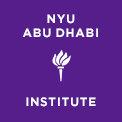In this guest post, Jonny Lawrence, a doctoral student at the University of Oxford, considers the powerful role of poetry in The Excellence of the Arabs by Ibn Qutaybah, translated by Sarah Bowen Savant and Peter Webb. “How mighty the pen, how feeble the sword,” he writes.
 If a tree falls in the forest and there is no poet to record it, did the tree really fall?
If a tree falls in the forest and there is no poet to record it, did the tree really fall?
In The Excellence of the Arabs, Ibn Qutaybah, a third/ninth-century polymath and Arabophile, frames much of the titular excellence around the Arabs’ innate claim to fields of knowledge not shared by other cultures, notably, for him, that of the Persians. Poetry and a few other arts and sciences—pre-Islamic methods of divination, the art of horse-husbandry, and the Islamic fields of jurisprudence (fiqh) and grammar (naḥw)—are “particular to the Arabs. Non-Arabs can master them only by learning and parroting; the Arabs alone possess the brilliance and glory of having developed them,” as Ibn Qutaybah writes. All the other branches of knowledge are “common to all peoples,” including the Arabs. But it is poetry which truly sets the Arabs apart: theirs is the knowledge of prosody, rhyme, and description.
Poetry is at the heart of Arab Excellence: technically brilliant and aurally stunning, pre-Islamic and early Islamic Arabic poetry also serves as the very record of that Excellence. It is both a technical and narrative wonder, appreciated both by Ibn Qutaybah and by his readers, contemporary and modern. Most strikingly in the first, more polemical, section of The Excellence of the Arabs, poetry serves as evidence for the general statements about Arab Excellence that Ibn Qutaybah makes. Throughout the text, Ibn Qutaybah relates anecdotes, which often include some form of poetic citation, as an example of what he is talking about; he then comments on the anecdote to show the reader exactly how to interpret the incident. The poetry, embedded into the anecdote, nearly always serves as a proof for one of his claims about the Arabs. For example, to illustrate the Arabs’ generosity and hospitality—and in defense against the Persian claim of their stinginess and poverty—he relates how the Umayyad caliph ʿAbd al-Malik ibn Marwān wished that, of all the Arabs, it had been ʿUrwah ibn al-Ward who had sired him, for ʿUrwah had composed poetry showing the full extent of his own generosity:
I share the broth in my pot,
But you keep the pot for yourself.
Do you, all fat and soft, scoff at me, because you see
I’ve wasted away by doing right by others?
I divide my body among many,
And I am left with clear, cold water.
According to Ibn Qutaybah, this poem made ʿUrwah famous for his generosity. From this poem, Ibn Qutaybah recounts that “it is as if he had divided up his body because the meat that was supposed to feed him was actually feeding others. He drank water during the winter and in times of drought, because he gave away all the milk he had.” We, the readers, are encouraged to “pause over this poem and over the noble meanings it conveys.” These meanings are related exclusively to us through the poem: it works for Ibn Qutaybah as a true record of an event, not subject to hyperbole or fictionalization. ʿUrwah truly did have nothing other than water, because that is what the poem tells us.
Thus, poetry serves as a record, “the source of the Arabs’ learning, the basis of their wisdom, the archive of their history, the repository of their battle lore… the truthful witness on the day of crisis, the irrefutable proof in disputes.” To return to the question I posed at the beginning of this blog post then, what role the poets in developing the Arabs’ excellence? How might we think of this mighty poetry as literature?
Ibn Qutaybah was deeply concerned that the voiceless, or rather the poetry-less, might fall into obscurity, for no matter how momentous the deed, its “memory will be effaced over time” should there be no poet there to record it. Indeed, such was the fate of the Ḥanīfah tribe, some of whose tribesmen he lists for their strength, valor, bravery, and riches, yet who are counted as “minor figures” by most people, if they even know them at all, for they had no poets and “hence their glorious past is now known only among experts.” For the Arabs to matter, for their Excellence to become known, somewhere there must be a record for posterity, preferably in poetic form: how else would Arab Excellence be remembered, canonized, exemplified?
Drifting out of collective memory and into obscurity is perhaps not the worst fate that can befall a tribe, who with one lash of the poet’s tongue can become the butt of ridicule for ever and a day: this “pen” is certainly mightier than the sword. This was found out to their peril by numerous characters in The Excellence of the Arabs, perhaps none more so than the poor tribe of Numayr, who were fiercely lampooned by Jarīr. As Ibn Qutaybah sees it, “the only thing most people know about the Numayr’s genealogy” is Jarīr’s caustic one-liner:
You are from the Numayr: look down in shame!
You do not measure up to the Kaʿb or Kilāb

Example of a meme proliferated to the nth degree. Credit: Walaa Quisay on Twitter.
This line ripples around the Numayr like a meme proliferated to the nth degree by snappy Twitter users, with anecdotes abounding of the tribe’s “indelible disgrace;” in one anecdote, a Bedouin woman scolded a group of Numayrīs who hung their heads in shame for looking her up and down, reminding them of Jarīr’s lampooning tongue, applying the poem to a new, physicalized context. This is an important feature of the relationship between poetry and anecdote in Arabic literature. The (unnamed) older woman, upon being corporeally looked up and down by the Numayrīs, reprimands them, saying, “Do you never learn!” and references Jarīr’s poem to remind them that they should “look down in shame!” Here the poetic image hangs on the double meaning: to look down out of shame and tribal honor politics and to look down in the physical sense, away from the woman’s body. The anecdote seamlessly weaves the poetic into the real: not only must they look down metaphorically because of their hubristic pretensions to greater valor than their tribe deserves, but also they must literally look at the ground.
What’s more, the poem’s theme spawns new poems, which reference the debasement of the Numayr at the hands of the famous Umayyad satirist and form new poems, riffing on Jarīr’s theme, such as the following lines spoken by Muḥammad ibn Mundhir:
My lampoon will debase you even more,
Just as the lampoon debased the Numayr
Here the debasement, or “bringing down” in a metaphorical sense, echoes the physical action of looking down referenced in Jarīr’s poem and also the way the poem affected the Numayr’s reputation, with the poet using the original one-liner as the basis for debasing another tribe. The poetic reference here highlights the extent to which the link between the Numayr and Jarīr’s lampooning has become common parlance. Indeed, Ibn Qutaybah writes that Jarīr’s line and its consequences have affected tribal perception of the Numayr to such a degree that people do not remember they are among the fieriest and fiercest of tribes. How mighty the pen, how feeble the sword.
Poetry’s effect on reputation works both ways, however. One unfortunate family was branded the “Sons of the Camel Snout” because their ancestor, Ḥanẓalah ibn Qurayʿ ibn Kaʿb, once ate the head of a camel. This name was reviled by his descendants, seemingly cursed by the action until the poet al-Ḥuṭayʾah remarked that
These people are the head, the others tails;
Who can equate a camel’s snout with its tail?
Thereafter the clan wanted nothing more than the association of this name. Glory, then, as well as shame, is tied to the poet and his ability to craft in clear and accessible language the triumphs of the tribe and frame others’ perceptions of their actions. It is for this ability that poets are celebrated and defended among their tribe. When the caliph ʿUmar ibn al-Khaṭṭāb said that “poetry is the potent speech of the Arabs,” it would appear that such effective reputation-building and devastating reputation destruction is what he meant.
For us, the readers (modern or Abbasid), it is also worth pondering the importance of that poetry to the recording and shaping of the collective memory of a culture long gone, so precariously recorded by written materials and preserved through the oral transmission of its most remarkable literary treasure. Throughout the text, the Arabs are praised for their virtues of generosity, aggression, bravery, and virility, yet it is their literary production which serves as the basis of their superiority. Without poetry, one wonders, what would there be left of these inter-Arab poetic jousting matches and very real battle-scars? Literature, cultural memory, poetry: these are the excellences of the Arabs, the true might at the heart of the Bedouin culture so lauded by Ibn Qutaybah. Indeed, would medieval Arabs or the modern reader still remember ʿAntarah, unnamed by Ibn Qutaybah here, but also famous both for his pre-Islamic poetry, War Songs, translated last year by James E. Montgomery with Richard Sieburth for the Library of Arabic Literature, and the fantastical and legendary narrative of his romantic and warrior exploits recorded in the Sīrat ʿAntar, were it not for that very diwan of poetry?
Ibn Qutaybah’s Excellence of the Arabs is, in many ways, a political and polemical endeavor responding to a particular moment in the development of Abbasid court culture and Arab-Persian interaction, as Sarah Bowen Savant and Peter Webb explain in their interviews with Marcia Lynx Qualey. Yet, one must not overlook the very real importance the text has, serving both as a repository of pre- and early-Islamic literature and a celebration of the power of literature and poetry to shape identity, cultural memory, and self-perception. What might would the sword have now, were it not for the poet’s tongue and the copyist’s pen?
—-
Jonny Lawrence is currently a doctoral student at the Oriental Institute of the University of Oxford. His thesis concentrates on emotion, gender, and sexuality in Mamluk literary discourses on passionate love and the way that emotions are constructed through literary processes and paradigms. Other main research interests include the Mamluk depictions of early Islamic history and culture. You can find him on twitter talking about all things Arabic literature, and for more on his PhD or to get in contact, see his faculty webpage.

